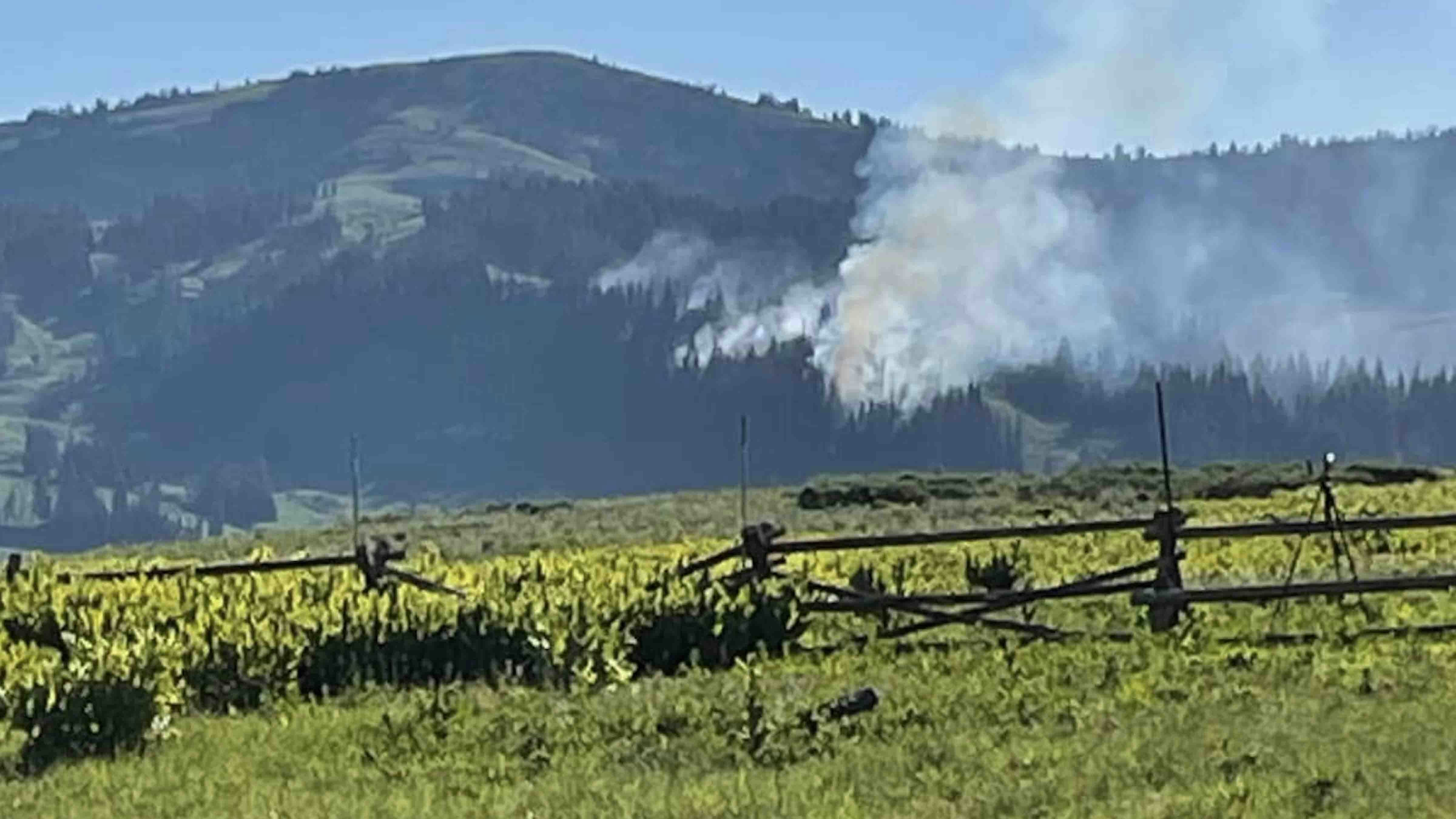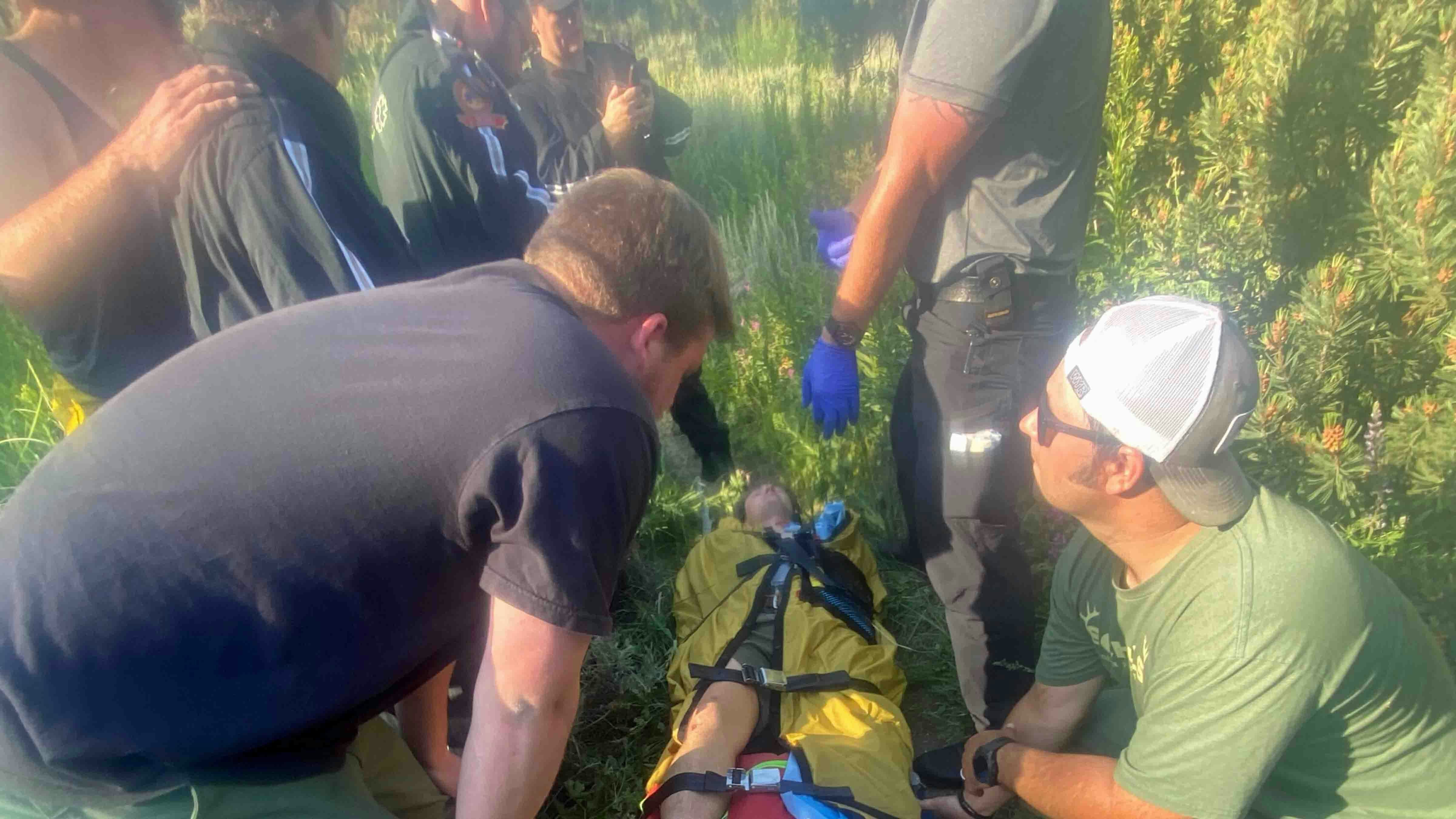If Wyoming grizzlies are selected to repopulate Washington State’s remote North Cascades region, they might not receive a warm welcome from locals.
“They are a major, major apex predator, they are at the top of the food chain,” Omak, Washington, resident Chance Cornell told Cowboy State Daily on Friday during a brief break from his job at a local hotel and casino.
He and his wife are avid hunters and outdoor enthusiasts, but Cornell said he’s not sure how he feels about possibly running into grizzlies in the backcountry.
“Now you’re talking about a grizzly bear. I think it’s going to come with some challenges. I don’t know what they’re going to do. I don’t know,” he said.
Northeast Oregon resident Ben Ludwigson told Cowboy State Daily that Washington’s North Cascades region has long been one of his favorite hiking and backpacking destinations.
But with grizzlies moving in, he’s not sure if he’ll keep going back.
“I guess as a hiker, a backpacker and somebody who ventures into the mountains, (the presence of grizzlies) is something that scares me when I’m in Yellowstone country, Montana or Canada,” he said. “When I’m here in Oregon or in Washington, all I’ve had to worry about are black bears. But grizzlies are on a whole other level.”
Bears Will Be Flown In
The U.S. Fish and Wildlife Service and other federal agencies recently green-lighted plans to reintroduce grizzlies to the North Cascades. Wyoming was named as a possible source for bears to transplant. But there’s been no final word yet on where the first batch of reintroduced grizzlies will come from.
When the reintroductions begin, possibly as soon as this summer, bears will be trucked into staging areas. The sedated grizzlies will then be placed in nets or on platforms slung under helicopters and flown to release sites in the backcountry.
Typical Concerns
Wyoming resident Rob Wallace is former U.S. assistant secretary of the Interior. He recently told Cowboy State Daily that in 2019, he went to Omak to represent the Interior Department during local public hearings regarding the grizzly reintroductions.
At the time, local resistance to the idea was strong, he said. Locals cited many of the same concerns that folks in Wyoming, Montana, Idaho and Colorado have about large predators such as grizzlies and wolves.
They expressed worry over grizzlies attacking cattle and possibly disrupting other existing land uses, Wallace said.
Will It Affect Tourism?
Cornell said the effects on tourism are also a concern.
“We do rely on tourism as part of the economy. There isn’t a whole lot of industry here,” he said.
“There’s hiking trails, there’s biking trails,” and people also enjoy boating and fishing, he said.
With that many people out and about, the presence of grizzlies could put a new twist on things, Cornell said.
“They’re saying, ‘Oh, this is going to work.’ But what happens when it doesn’t work?” he said.
As to whether the reintroduction of grizzly bears could hurt local tourism, “I think it might,” Cornell said. “I think it might slow down. Or, maybe I’m 100% wrong and maybe we won’t see any change in tourism at all.”
Ludwigson said he’s also worried about what could happen when grizzlies return to an area where, unlike Wyoming, people aren’t used to them.
“There are just a lot of unprepared people in those mountains,” he said.
Mixed Feelings
Cornell said he and his wife like getting outside as much as they can and hunt mule deer, whitetail deer, turkey and waterfowl.
“We are generally armed when we go to the outdoors,” he said.
However, the area where the bears will be introduced is “a national park,” where firearms aren’t allowed, he added.
“I don’t think (the grizzly reintroductions) will deter anything I’m doing. I’ve never seen a grizzly in real life out in the wild. We’ve seen some black bears. There’s something way different between a black bear and a grizzly,” Cornell said. “But where they’re going to be putting them, heck, maybe we’ll never see them.”
Ludwigson said he’s tried to consider both sides of the debate over grizzly reintroduction, but ultimately leans against the idea.
“Just as a recreationalist, I don’t support it, and I don’t want to go up there and deal with that additional threat of a much larger mammal,” he said.
Mark Heinz can be reached at mark@cowboystatedaily.com.





